Donor Egg Frequently Asked Questions
Here is a list of egg donor frequently asked questions and answers about donor egg treatment. We hope that you will find them helpful as you are considering the donor egg treatment option.
Who is a Candidate for IVF using donated eggs?
Candidates for Egg Donation include married or single women with one or more of the following conditions: premature ovarian failure, malfunction of the reproductive organs, chromosomal abnormalities, genetic disorders, removal of the ovaries or radiation to the ovaries. Finally, IVF patients who have had a poor response to stimulation or poor quality eggs (typically poor responders), may also be candidates. We have donors immediately available and couples can expect to have their cycle completed within a couple of months after chosing their egg donor.
How does the process work?
This is one of the top egg donor frequently asked questions. Your initial consultation will include a meeting with the medical director to review your medical history and may include a physical exam, blood testing, ultrasound, Pap test and cultures. Once you are accepted into the Donor Egg program, you will be scheduled to meet with a nurse coordinator and/or Medical Director to review the program in detail, discuss the required testing for you and your partner and to schedule your consultation with our psychologist (usually one meeting).
Recipient Screening Tests
Standard testing per the American Society for Reproductive Medicine (ASRM) guidelines include screening for sexually transmitted diseases, infectious diseases such as Hepatitis and HIV, and hormonal evaluations, among others. The uterine cavity will be evaluated using several methods to ensure its receptivity at the time of embryo transfer (such as hysteroscopy, HSG, and sonohysterogram). One such method is a Preparatory Cycle (Prep Cycle) that hormonally mimics a natural menstrual cycle (We rarely perform a Prep cycle). Since pregnancy puts added stress on a woman’s body, if you are 44 or older, you will need to obtain a medical clearance from your primary care doctor before starting in our program, and may need to do some additional testing (such as chest X-ray, stress test, and Mammogram).
How Do I Select My Donor?
Donors can be either Known (family member/friend) or Anonymous. Anonymous donors are available to you once you have consulted with the Medical Director and expressed your desire to be part of the Donor Egg Program. There may be a waiting period, which will vary according to your donor requirements and donor availability. Donors are offered to recipients who have completed their screening tests or are near completion. If you are offered a donor with whom you do not feel appropriately matched, you may refuse that donor and wait for the next available one. Any special requests you may have for a donor should be noted on your history form and should be brought to the attention of the nurse coordinator or medical director.
What is VCRM’s Egg Donor Criteria?
Donors must undergo extensive physical and psychological testing before they are accepted into our program. Anonymous donors must be 21-27 years of age, while known donors may be 21-36 years of age. It is important to note that known donors, regardless of their age, must have sufficient ovarian function to respond adequately to stimulation. A woman may donate a maximum of 6 times. If you choose to use an anonymous donor you will be given a complete medical history of the donor and her family as well as a thorough description of her physical characteristics (you can see a recent photo of the donor).
What is the Typical Recipient/ Donor Treatment Cycle Like?
Egg Production
The IVF cycle is performed on your donor using a combination of fertility drugs to increase the number of eggs produced. Multiple follicles (the part of the ovary that contains the eggs) are needed to increase the number of eggs retrieved, thereby increasing the number of embryos developed, and hence the chances for conception.
The process begins with the synchronization of both donor and recipient’s menstrual cycles and usually requires using the medication Lupron. Your donor will also be taking daily injections of medications which you will provide, to encourage this multi-follicular development. This is evaluated by serial blood levels and ultrasound. At a time determined by the physician, an injection of human Chorionic Gonadatropin (hCG) is given to bring the eggs to final maturity. Approximately 35 hours after this injection, your donor will undergo the egg retrieval that is done in our OR on an outpatient basis.
Preparing Your Uterus For Implantation
You will be hormonally synchronized to your donor using Estrogen and Progesterone on a strictly followed schedule (comparable to your Prep Cycle, if you have had one). Your endometrium will be evaluated similarly using blood tests and ultrasounds. In addition, the angle and depth of your cervix and uterus will be determined using a catheter identical to the one that will be used for the actual embryo transfer (Trial Transfer).
Egg Retrieval
Aspiration of follicles for eggs is performed through an ultrasound-guided approach under IV sedation, monitored closely by an anethesiologist. The retrieval consists of aspirating the ovarian follicles, and identifying the eggs in the follicular fluid under a microscope. On this day, your partner will be expected to produce a sperm sample that will be used to inseminate the eggs.
Embryo Transfer
The embryo transfer is usually done 3-5 days after the retrieval. The physician performing the transfer will discuss with you and your partner the status of your embryos and the number to be replaced. VCRM recipients DO NOT share donors (this will give you the opportunity to have more biologically related children if you so wish). The number of embryos transferred varies according to their quantity and quality. You may be offered the opportunity to cryopreserve any remaining embryos that continue to develop normally, for possible transfer in future cycles.
You will come to the office for the transfer and the procedure will be done in the OR under sterile conditions. The transfer is usually easy and virtually pain free in most cases. Following the transfer you will lie flat for 20 minutes, and afterwards return home to relax for the remainder of the day.
Testing for Pregnancy
The pregnancy test is performed 12 days after embryo transfer. If you are pregnant we will follow your progress for an additional 4-5 weeks before discharging you to your own obstetrician.
Split or Shared Cycles
Another option for couples considering donor oocytes is to split the oocytes from one donor among 2 recipients. This will result in substantial savings without compromising the success rates, but may delay the cycle until another couple is willing to split the same donor. The anonymous donors used in these split cycles are those who have donated a high number of oocytes previously, or expected to donate > 15 eggs (based on their antral follicle counts and ovarian volume). The pregnancy rates are identical to our traditional (non-split) rates, and therefore there is no compromising our high success rates. The only disadvantage for a split cycle is the lower chance at having additional embryos frozen for another attempt. However, the very high pregnancy rate from the initial attempt makes this issue rather moot.
For more information about our Split Donor cycles, please contact our donor egg coordinator at 571-206-4763.
Using Frozen Eggs from Egg Banks:
At VCRM we use both fresh and frozen oocytes in our donor program. The latest data on the use of frozen oocytes are very encouraging and they show that the success rate is identical to those when fresh oocytes are used. Contact us for answers to more egg donor frequently asked questions.



